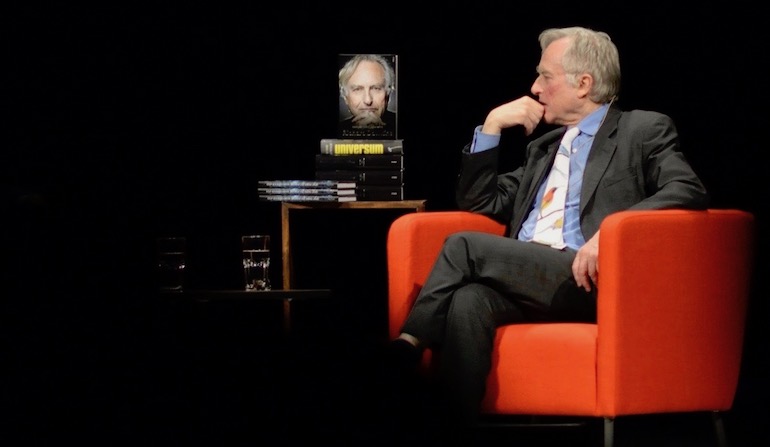 Human Origins
Human Origins
If Human Eugenics Wouldn’t Work, Human Evolution Has a Big Problem

Richard Dawkins got his wings clipped over the weekend, following a claim on Twitter that human eugenics, whatever its demerits otherwise, would certainly work. After all, it does with animals: “It works for cows, horses, pigs, dogs & roses. Why on earth wouldn’t it work for humans?”
It’s one thing to deplore eugenics on ideological, political, moral grounds. It’s quite another to conclude that it wouldn’t work in practice. Of course it would. It works for cows, horses, pigs, dogs & roses. Why on earth wouldn’t it work for humans? Facts ignore ideology.
— Richard Dawkins (@RichardDawkins) February 16, 2020
He was quickly forced to backpedal a bit, “For those determined to miss the point,” saying he “deplores” it as a policy, “I simply said deploring it doesn’t mean it wouldn’t work.” And again, “A eugenic policy would be bad. I’m combating the illogical step from ‘X would be bad’ to ‘So X is impossible’.”
From the Annals of Eugenics
It wasn’t clear why he felt driven to “combat” the “impossibility” thesis in the first place. But a replay of the Marshall McLuhan scene from Annie Hall soon intervened, as a renowned geneticist, David Curtis of University College London, stepped in with a series of tweets of his own, schooling Dawkins on why dreams of human eugenics, apart from being “evil” and “racist,” wouldn’t “work.” Dr. Curtis edits the journal Annals of Genetics, which as he points out, used to be called the Annals of Eugenics. So he ought to know. The thread, 19 tweets in length, needs to be read in full. Find it here.
I work on human genetics and am honorary professor at the UCL Genetics Institute. I’m the editor-in chief of a journal which used to be called Annals of Eugenics. I just wanted to say that we now know from the latest research that eugenics simply would not work.
1/n— Dave Curtis (@davecurtis314) February 18, 2020
He enumerates several things that distinguish humans from animals, among them:
There are a number of different kinds of reason why eugenics would not work. One is that humans have long generational times and small numbers of offspring. This would make any selective breeding process extremely slow.
7/n— Dave Curtis (@davecurtis314) February 18, 2020
A Massive Extrapolation
In an email, a geneticist friend notes the irony. Darwinian evolution is a massive extrapolation from selective breeding in animals. Of course animal breeding “works,” up to a point. Darwin in the Origin of Species cited the efforts of pigeon fanciers. In a New York Times book review, Dawkins once taunted Michael Behe with the successes of dog-breeding. But there are limits. Dogs can’t be bred to become cats, nor pigeons into bats. There appear to be set limits. Why? Behe has noted the problem that dog-breeding, canine eugenics, is accomplished largely by breaking genes:
Popularizers of evolution said if we can breed dogs that are so different from each other and only do it in the past few hundred years, how much better could nature do? But again, we didn’t know what was going on in the biology of these dogs. In the past 10 years, the entire genomes of many different dog breeds have been sequenced. And again, it turns out if you want a Chihuahua, you can break one of the genes involved in growth. If you want French poodles with curly hair, you break a gene involved in hair growth. If you want a dog with a short muzzle, you break a gene involved in facial shape development.
Dave Curtis’s well informed observation is that even given the success of animal breeding, the analogy with humans is mistaken. But that leaves evolution…where? The extrapolation from dogs or pigeons to macroevolution fails because building genuine biological novelties, not just a Chihuahua as distinct from a poodle, requires more than merely breaking stuff, aka devolution, as Behe has shown in his book Darwin Devolves. If the many wonders of the animal world could not have proceeded from Darwinian blind shuffling alone, then human evolution, which can’t even stand on the shaky ground of human eugenics, all the more cannot have done so.
Update: It just occurred to me — duh! — that’s why Dawkins felt compelled to “combat” the idea that eugenics with humans is impossible. For the Darwinist, whether it is seen as a good or a bad thing, it must at least be possible.
Photo credit: Richard Dawkins, by Magnus Norden (151212035) [CC BY 2.0], via Wikimedia Commons.

